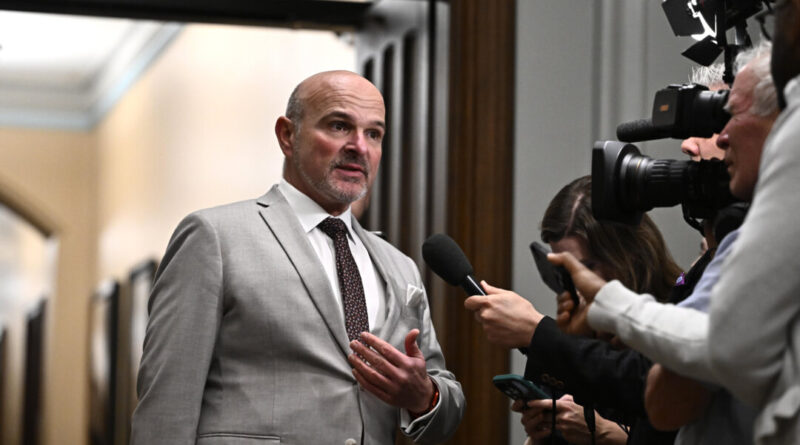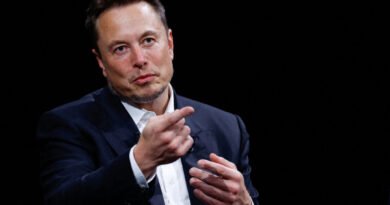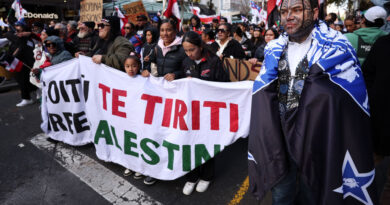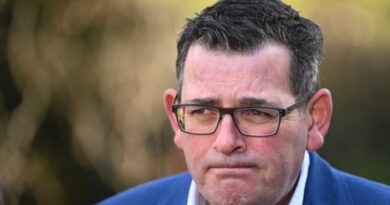Investigation into Randy Boissonnault’s Identity Claims and Business Dealings at Committee
During his appearance at a parliamentary committee, former cabinet minister Randy Boissonnault faced scrutiny regarding claims about his identity, including from an indigenous NDP MP who expressed doubts about his statements.
Boissonnault has faced criticism for his former company bidding on federal contracts while falsely claiming to be indigenous-owned. Additionally, he has been questioned for changing his claims about his indigenous heritage.
During his testimony, Boissonnault mentioned that his adopted family had told him his great grandmother was Cree. He previously described her as “full-blooded Cree” in public statements.
Boissonnault explained that he referred to himself as a “non-status adopted Cree” after consulting with an indigenous researcher for advice on how to discuss his family’s history.
“I sincerely apologize. To clarify, I have never claimed indigenous status for myself,” he stated.
MP Lori Idlout, from Edmonton, questioned Boissonnault about the Cree nation his family belonged to when he made the claims. Boissonnault mentioned that he didn’t discuss it much with his family.
“We didn’t talk about it a lot, but I know growing up with my great-grandmother, she wasn’t part of a nation, she married a settler,” he explained.
“Anytime that I’ve seen my name associated with indigenous status, I have been quick to change that,” Boissonnault stated.
Idlout expressed skepticism about Boissonnault’s testimony, stating that his shifting claims about his indigenous identity were difficult to believe.
Boissonnault responded by saying that he has always tried to be consistent with his identity.
Conservative MPs also questioned Boissonnault about his identity, with Garnett Genuis asking why Boissonnault referred to himself as a “non-status adopted Cree” after consulting with an indigenous researcher who did not agree with the label.
“So you sat down with professor Cowie and he gave you some advice. You ignored that advice and came up with this term independently, on your own,” Genuis pointed out.
Business Dealings
Conservatives also focused on Boissonnault’s previous business dealings during the committee meeting. They have suggested that Boissonnault violated ethics rules by remaining involved in the management of his former business, Global Health Imports (GHI), after being re-elected to Parliament in 2021 and becoming a minister.
Part of their argument revolves around Boissonnault’s former business partner, Stephen Anderson, referring to a “Randy” in text messages related to business operations while Boissonnault was in office. The ethics commissioner investigated these claims multiple times but did not release any findings.
Boissonnault distanced himself from Anderson, accusing him of behaving unethically. He mentioned seeking legal advice to explore options against Anderson.
During the meeting, Tory MP Michael Cooper highlighted that GHI had falsely claimed to be indigenous-owned in order to bid on federal contracts in June 2020, when Boissonnault was still a partner in the company. Boissonnault stated that the decision was made by Anderson.
“I’ve never identified as indigenous on any application form, nor have my businesses ever benefited,” Boissonnault clarified.
“I am not named in any of the lawsuits against the company, and the events reported by the media occurred after I stepped away from the company,” he added.
Cooper highlighted that Boissonnault’s business falsely claimed to be indigenous-owned to bid on federal work while Boissonnault was still a 50-50 partner in the company. GHI is not listed in the federal bank of indigenous-owned businesses.
“Why did you say that all of the allegations occurred after you had left Global Health Imports?” Cooper questioned. “Why did you mislead the committee this morning on that?”
Boissonnault refuted the accusation, reiterating that he was not involved in any federal work. “I confirmed that with the ethics commissioner,” he asserted.
This report includes contributions from Matthew Horwood.





